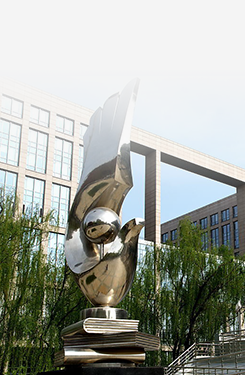Lecturer:Feixiong LIAO, Doctor
Topic:Synthesizing networks: the modeling of supernetworks for activity-travel behavior
Time:2013.09.03,10:00-11:30
Location:A1136
Host:Professor Huang Haijun
Abstract:
This talk discusses several extensions and an application of the state-of-the-art of multi-state supernetworks for modeling individuals’ activity-travel behavior. A personalized multi-state supernetwork represents an individual’s daily activity program and network service provisions such as multi-modal transportation system, locations of facilities and ICT etc. in an integrated framework. Multiple dimensions of choices concerning the activity-travel patterns can be expressed as path choice through the supernetwork. Consequently, activity-travel scheduling decisions can be modeled at a high level of detail and in a systemic fashion. This talk mainly consists of three parts. First, an efficient multi-state supernetwork representation is introduced. Second, several time-dependent components of the supernetworks are discussed. Third, an application and future extensions are presented.
This research was conducted as part of the project “Synchronizing networks: the modeling, use, governance and design of the supernetworks”, which is part of the SAR (Sustainable Accessibility of the Randstad) programme supported by Dutch Science foundation.
About the Lecturer:
Dr. Feixiong LIAO obtained his Bachelor degree in Automation at Wuhan University of Technology (China) in 2004. One year later, he started his Master study in Systems Engineering at the University of Shanghai for Science and Technology (China) where he did research on a series of meta-heuristic algorithms for network optimization and graduated in 2008 with the honor of Academic Star of Excellent Graduate of the city of Shanghai. In the spring of 2009, he became a Ph.D. candidate at the Urban Planning Group of Eindhoven University of Technology, funded by the Dutch Science Foundation (NWO). He has worked with a consortium to examine how the accessibility in the Randstad (The Netherlands) can be improved by implementing synchronization strategies. From September 15 to December 15, 2011, he visited Professor Nagurney’s group at the supernetwork center of the University of Massachusetts at Amherst (USA), where he took courses and conducted research on user-equilibrium and system-optimization. After completing his Ph.D. study, he becomes a post-doc researcher at the same research group to conduct research on travel behavior, activity-travel scheduling, accessibility analysis and dynamic activity-travel assignment. The post-doc project is in cooperation with Beihang University (Beijing) funded jointly by Dutch Science Foundation and Chinese National Science Foundation.
School of Economics & Management
2013-08-29

